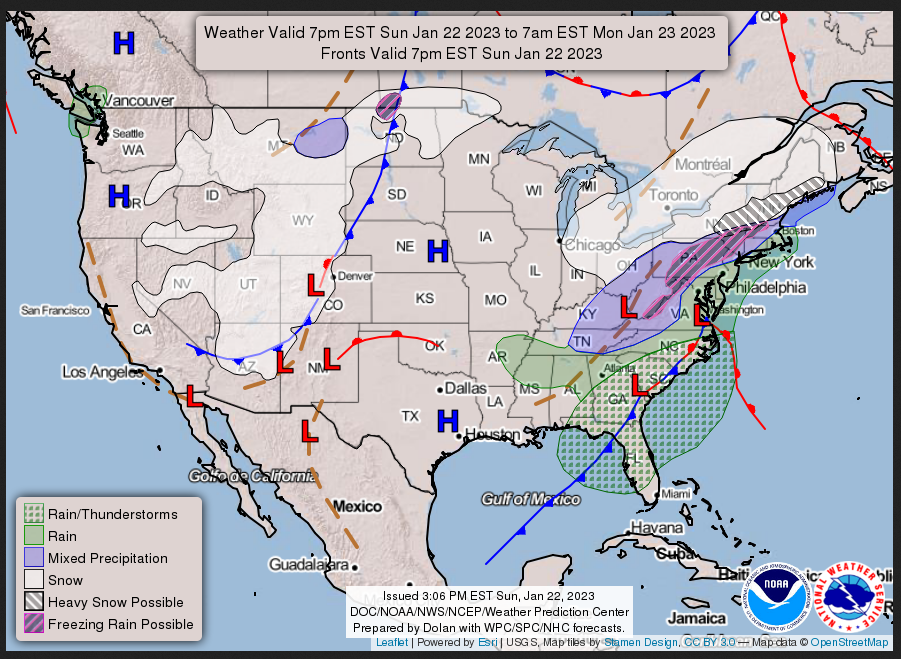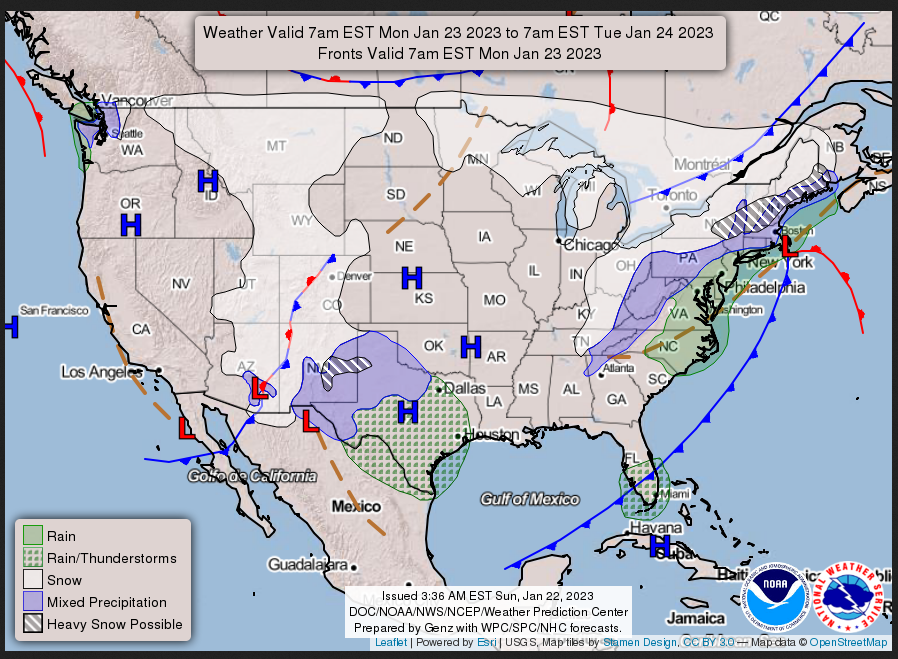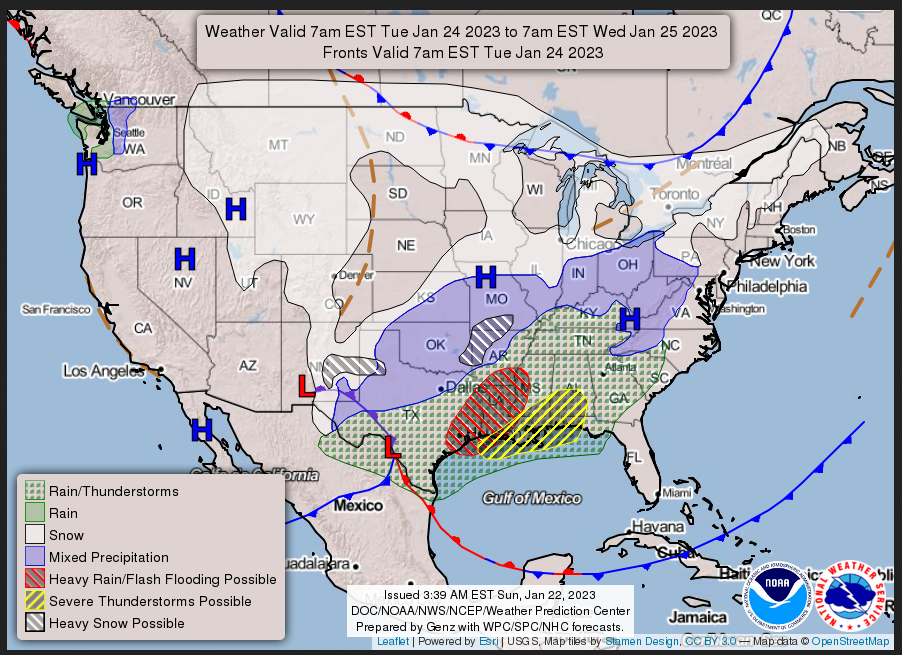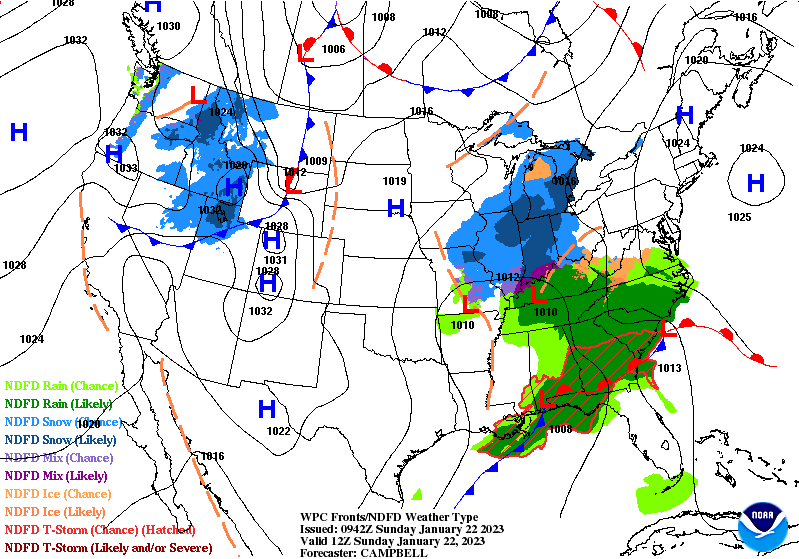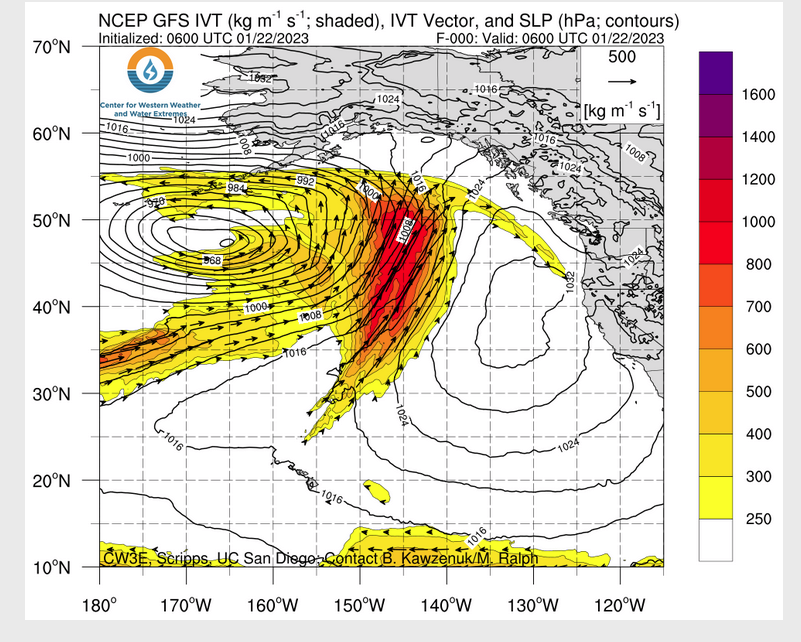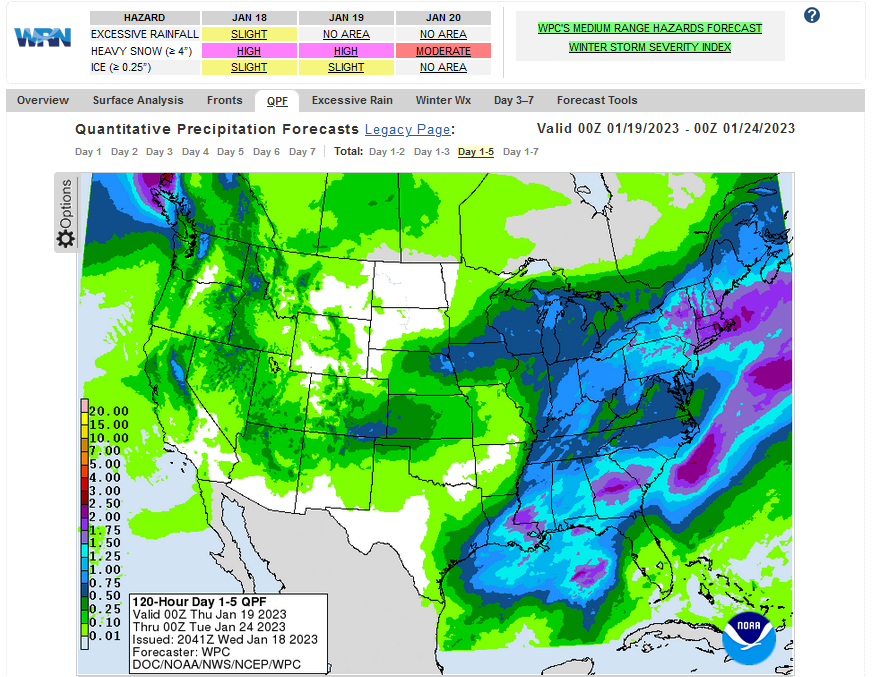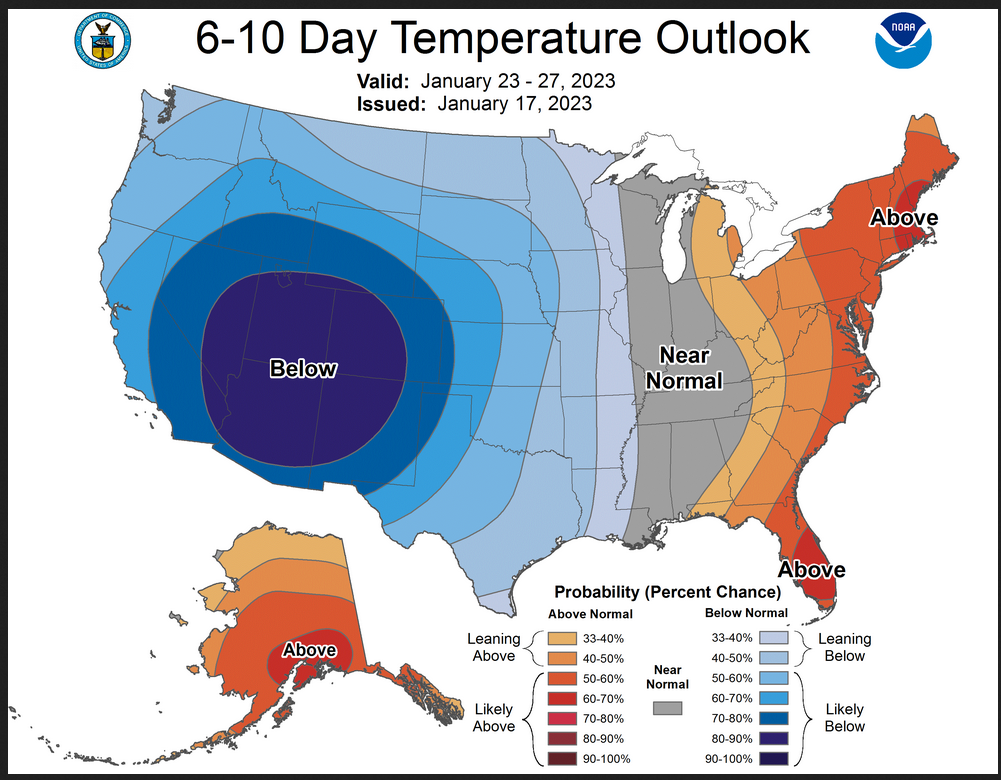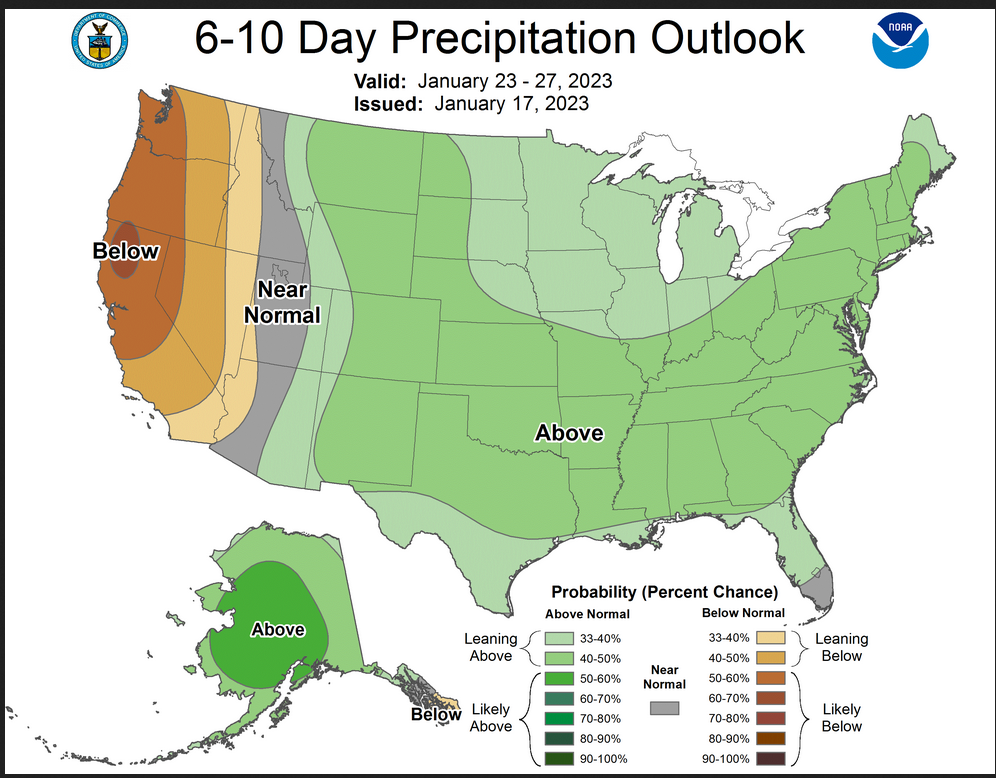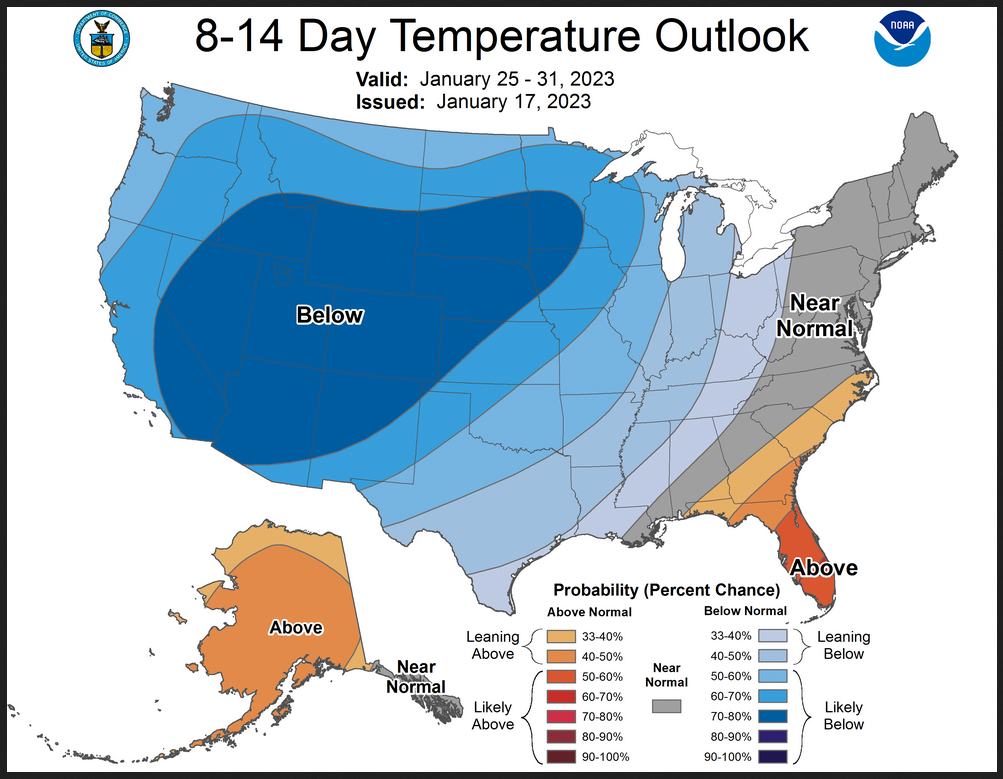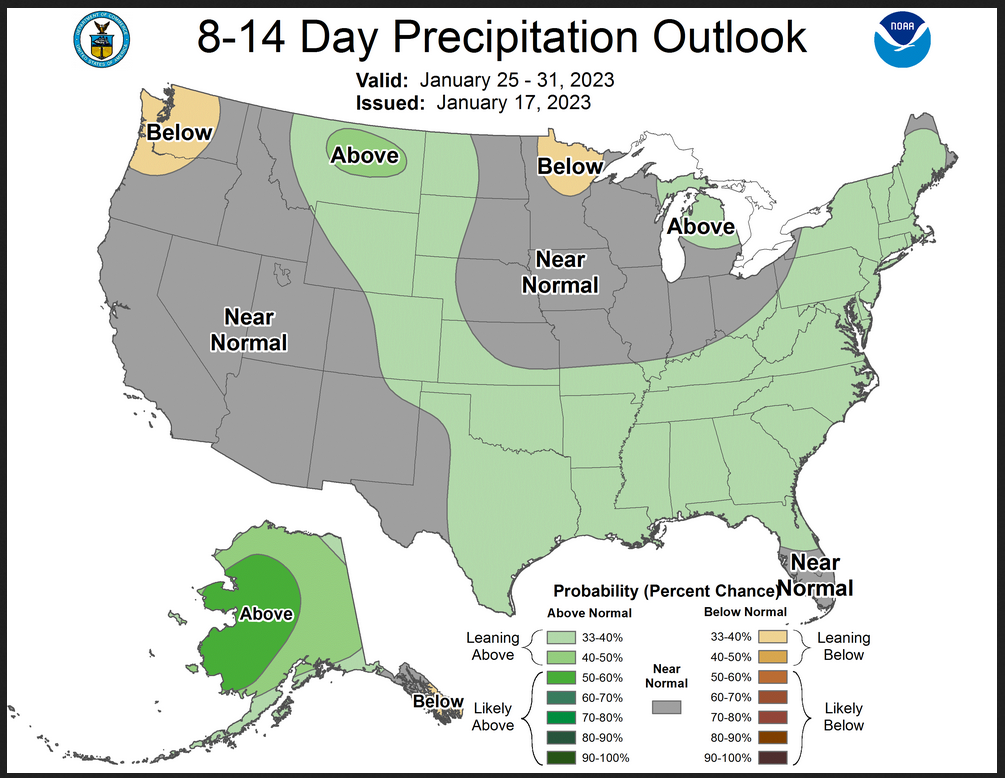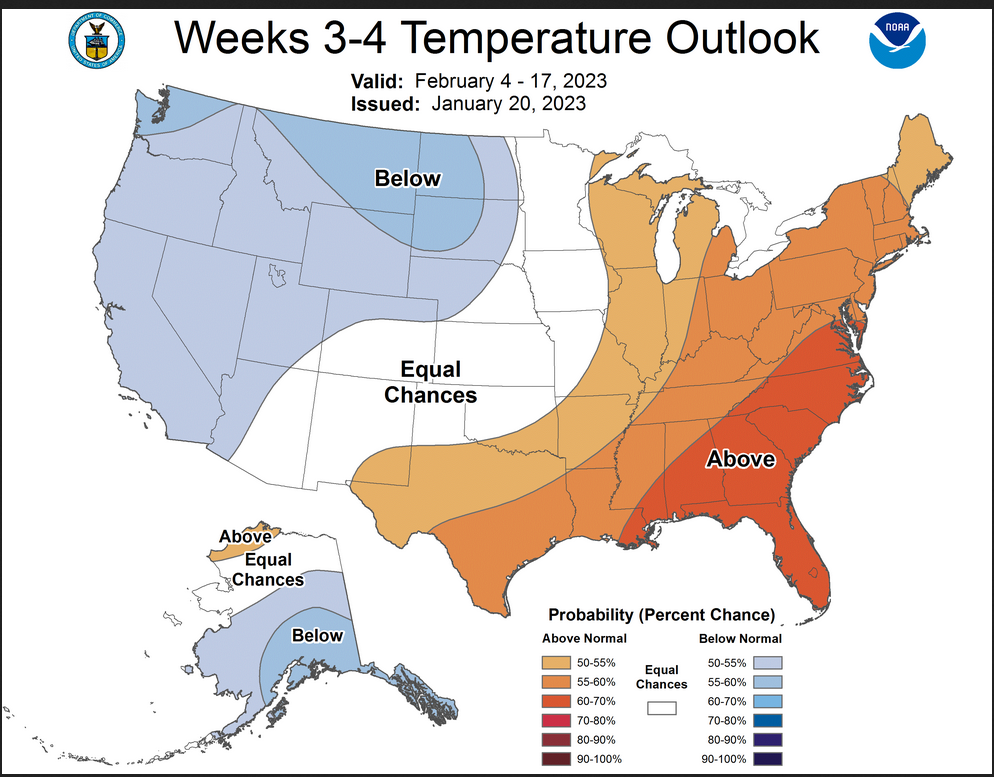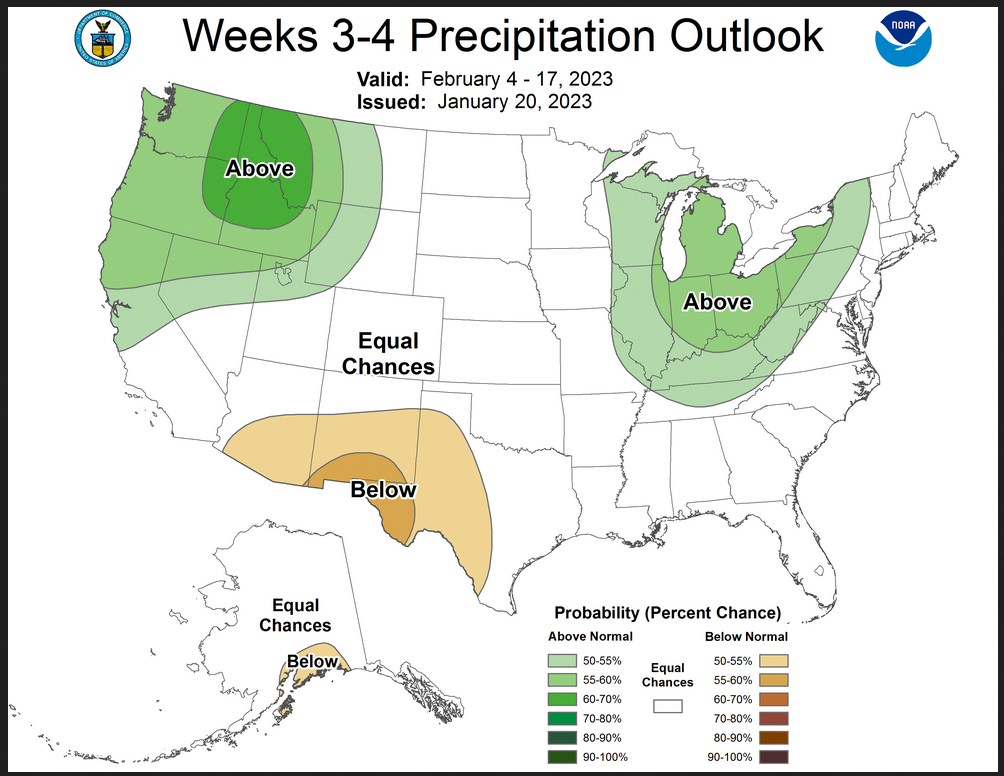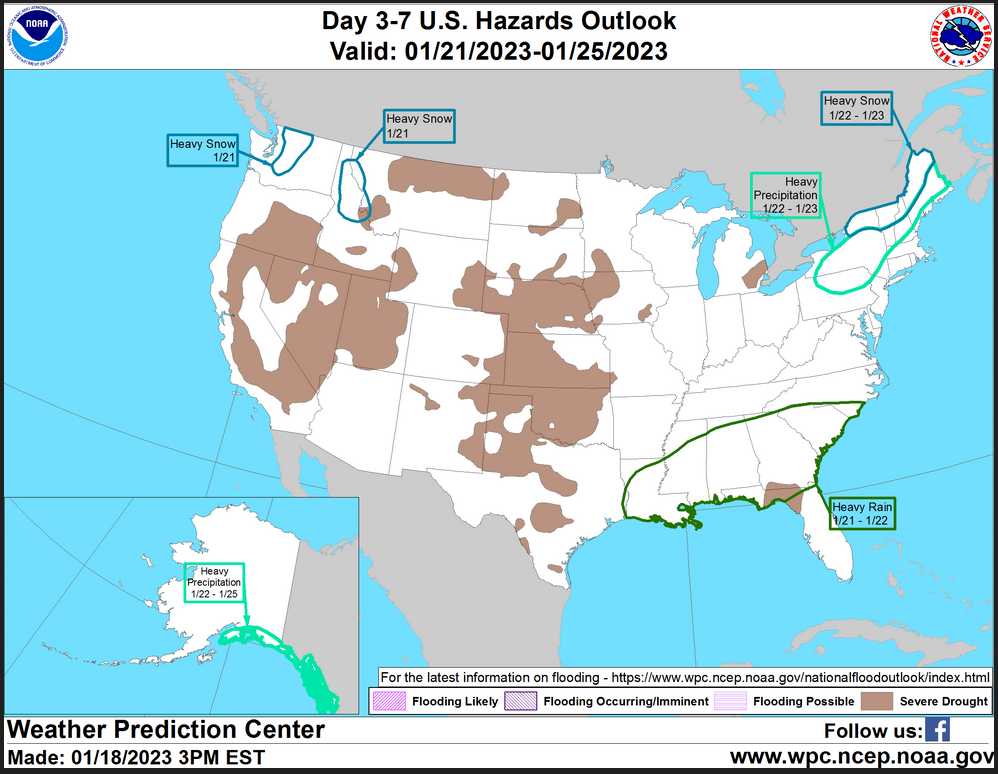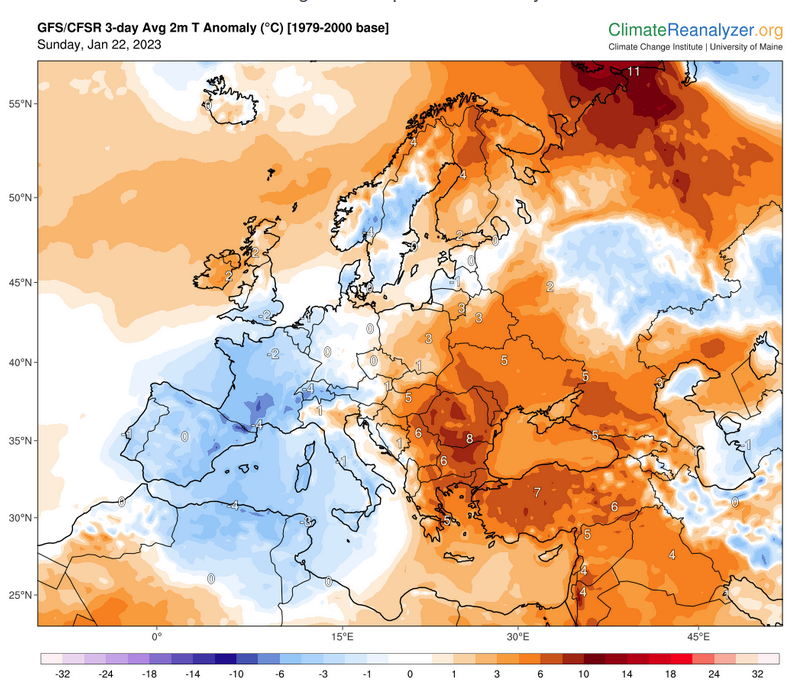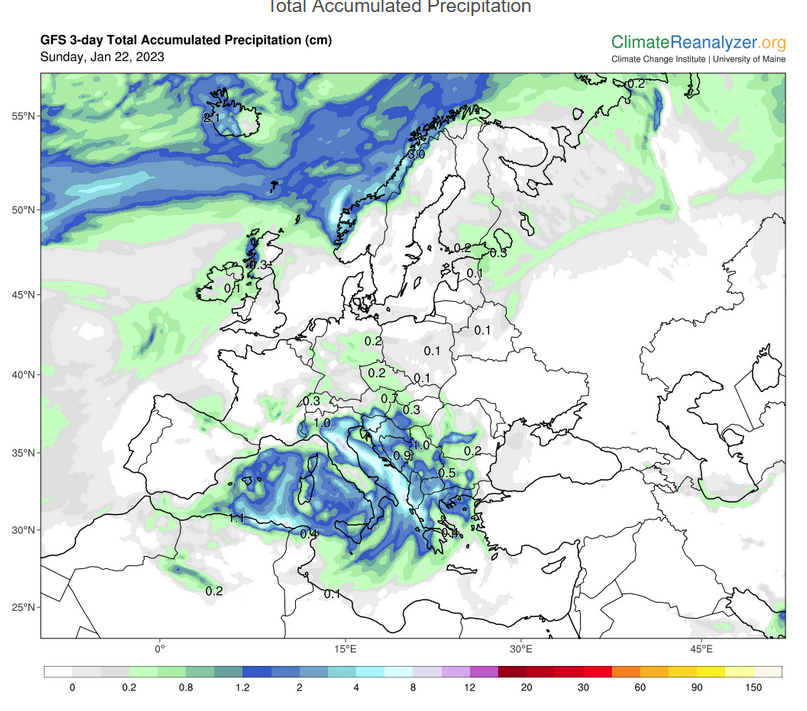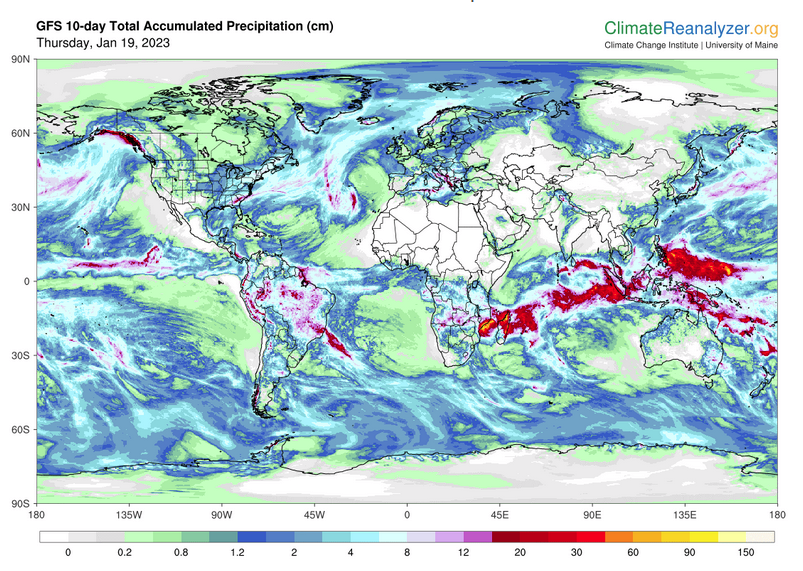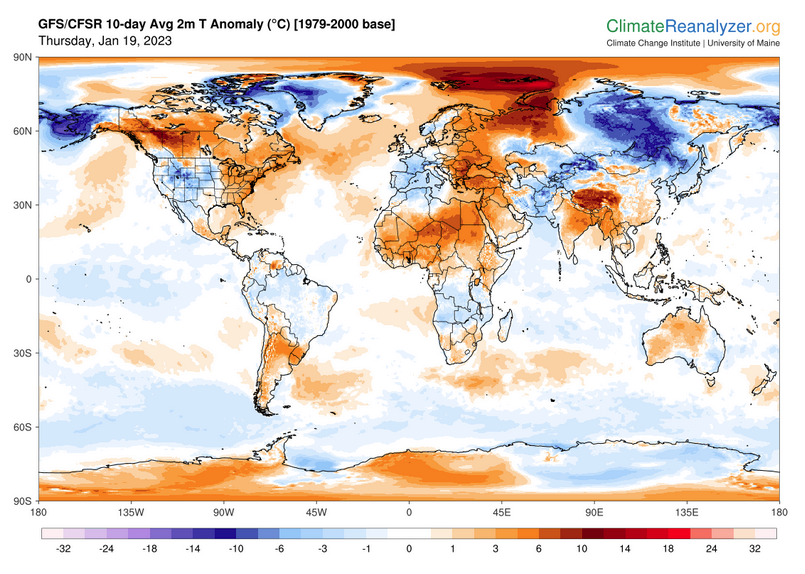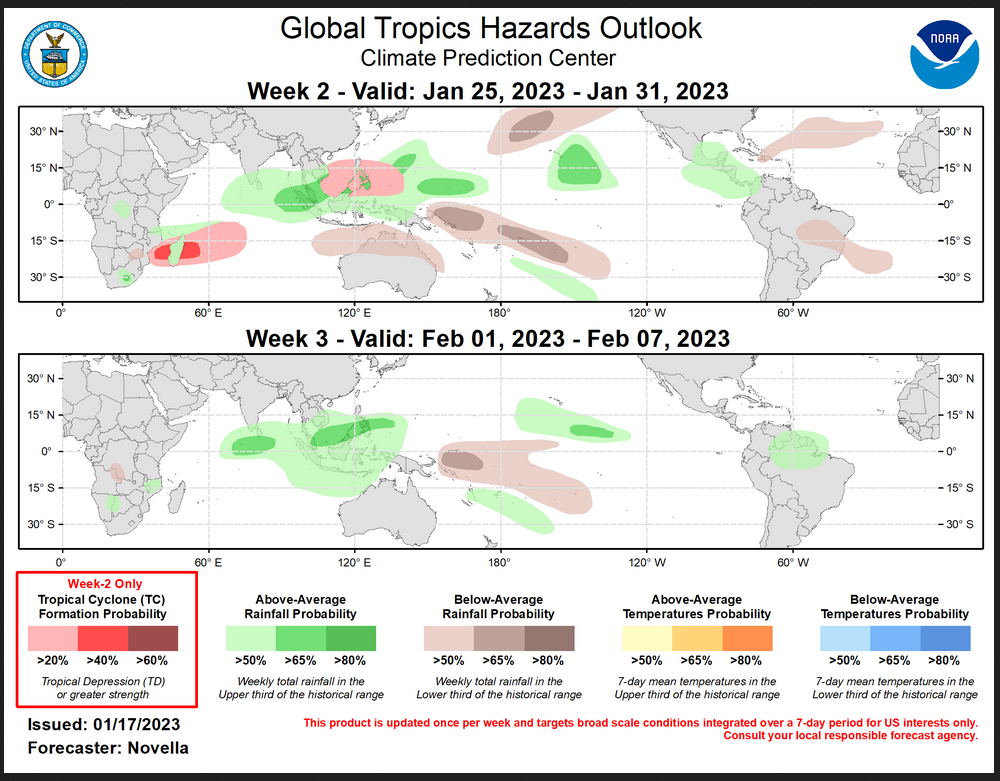Updated at 3:47 p.m. EST Sunday January 22, 2023
Here is what we are paying attention to in the next 48 to 72 hours. This article also includes World weather forecasts.
It also includes links for longer-term outlooks and sometimes we show the maps that one finds if one clicks on those links. But we can not update all of those maps each day so look at the date and the duration of the period of time involved. If you want a more up-to-date map, click on the provided link which may be located in a table of links. NOAA makes it difficult for us to have maps that auto-update. We are trying to make it convenient for readers but NOAA wants us to steer traffic to a large number of their websites which would make it very difficult for readers.
We start with the U.S. Information.
Short Range Forecast Discussion
NWS Weather Prediction Center College Park MD
242 PM EST Sun Jan 22 2023Valid 00Z Mon Jan 23 2023 – 00Z Wed Jan 25 2023
…Heavy snow over parts of Northeast…
…There is a Marginal Risk of severe thunderstorms and excessive rainfall
over parts of the Eastern Gulf Coast and Southeast……Pockets of rain/freezing rain over parts of the Central Appalachians
and Northeast…
First, the 48-Hour Forecast (It is a 48 to 72 Hour Forecast actually)
Daily weather maps. I try to keep the below three maps updated. The Day 1 map updates twice a day and the Day 2 and 3 maps update only once a day. I will be doing the updating during the period described in the title of the article but if you happen to read this article later, you can get updates by clicking HERE.
SUNDAY AFTERNOON, EVENING AND OVERNIGHT
MONDAY
TUESDAY
This animation shows how things may play out over the next 60 hours. To update click here.
ATMOSPHERIC RIVERS
Continuation of the NWS Short Range Forecast (It is updated by NWS twice a day and these updates can be found here. We post at least one of those updates daily, sometimes both. The Highlights are shown in the lede paragraph of this article.
A storm over the Southeast and Mid-Atlantic will move northward along the East Coast to Cape Cod by Monday, then move into the Canadian Maritimes by Tuesday. The system will produce snow over parts of the Ohio Valley/Central Appalachians and heavy snow will start over the Northeast on Sunday evening into Monday. Pockets of rain/freezing rain will also develop overnight Sunday into Monday over parts of The Central Appalachians into the Northeast. The snow will result in reduced visibility and hazardous driving conditions. Meanwhile, rain will develop over parts of the Tennessee/Ohio Valleys and the Mid-Atlantic by Sunday evening. Additionally, showers and moderate to severe thunderstorms will develop over the Southeast. Therefore, the SPC has issued a Marginal Risk of severe thunderstorms over parts of the Eastern Gulf Coast/Southeast through Monday morning. The hazards associated with these thunderstorms are frequent lightning, severe thunderstorm wind gusts, a few tornadoes, and a minimal threat of hail. In addition, the storm will produce moderate to heavy rain. Therefore, the WPC has issued a Marginal Risk of excessive rainfall over parts of the Eastern Gulf/Southeastern Coast from Sunday through Monday morning. The associated heavy rain will create localized areas of flash flooding, affecting areas that experience rapid runoff with heavy rain. The threats of severe thunderstorms and excessive rainfall will end on Monday. In the meantime, a front over the Central/Southern Rockies into the Southwest will move southward to Northwest Mexico by Monday. The system will produce snow over the Intermountain Region/Great Basin and expand into the Southwest overnight Sunday. On Monday, the snow will develop over parts of the Southwest and into the Central/Southern Rockies. The snow will continue over parts of the Southwest and Central/Southern Rockies overnight Monday. On Tuesday, moisture from the Western Gulf of Mexico will stream northward over the Southern Plains producing showers and severe thunderstorms. Therefore, the SPC has issued a Slight Risk of severe thunderstorms over the Central Gulf Coast and the Southeast on Tuesday. The hazards associated with these thunderstorms are frequent lightning, severe thunderstorm wind gusts, hail, and a few tornadoes. Moreover, the showers and thunderstorms will produce heavy rain. Therefore, the WPC has issued a Slight Risk of excessive rainfall over parts of the Western Gulf Coast and Lower Mississippi Valley. The associated heavy rain will create mainly localized areas of flash flooding, with urban areas, roads, and small streams the most vulnerable. Furthermore, on Tuesday, the system will produce light to moderate snow over parts of the Southern High Plains into northwest Arkansas. Also, on Tuesday, upper-level energy move over the Northern Rockies into the Northern Plains will produce light snow over parts of the Northern Intermountain Region/Northern Rockies and Northern High Plains into the Great Basin/Central Rockies. The snow will result in reduced visibility and hazardous driving conditions.
Below is the current five-day cumulative forecast of precipitation (Updates can be found HERE)
Now we look at Intermediate-Term “Outlook” maps for three time periods. Days 6 – 10, Days 8 – 14, and Weeks 3 and 4. An outlook differs from a forecast based on how NOAA uses these terms in that an “outlook” presents information as deviation from normal and the likelihood of these deviations.
Below are the links to obtain updates and additional information. They are particularly useful if you happen to be reading this article significantly later than when it was published. I always try to provide readers with the source of the information in my articles.
On Fridays, the Week 3 – 4 Outlook updates. So let us take a look.
HAZARDS OUTLOOKS
Click here for the latest complete Day 3 -7 Hazards forecast which updates only on weekdays. Once a week probably Monday or Tuesday I will update the images. I provided the link for readers to get daily updates on weekdays. Use your own judgment to decide if you need to update these images. I update almost all the images Friday Night for the weekend edition of this Weather Report. So normally readers do not need to update these images but if the weather is changing quickly you may want to.
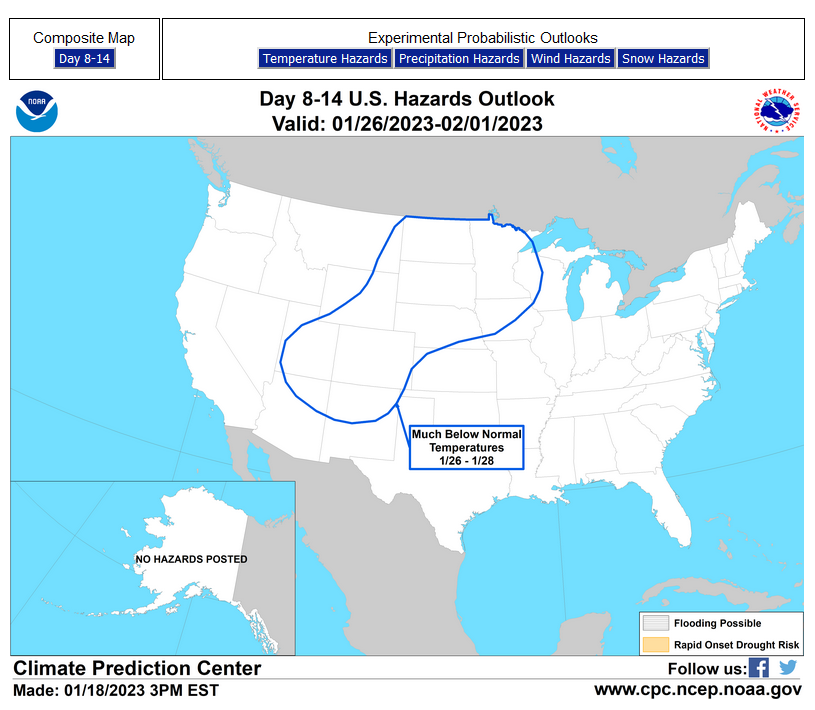 Month to Date Information
Month to Date Information
Temperature month to date can be found at https://hprcc.unl.edu/products/maps/acis/MonthTDeptUS.png
Precipitation month to date can be found at https://hprcc.unl.edu/products/maps/acis /MonthPNormUS.png
World Forecast
Below are the current precipitation forecast and the 10-Day forecasts for temperature and precipitation. Updates and additional information can be obtained HERE
Much of this information is provided by the University of Maine. They draw upon many different sources.
This graphic updates on Tuesdays) If it has not been updated, you can get the update by clicking here Readers will only have to do that if they are reading this article much later than the date of it being published.-
| I hope you found this article interesting and useful. |

